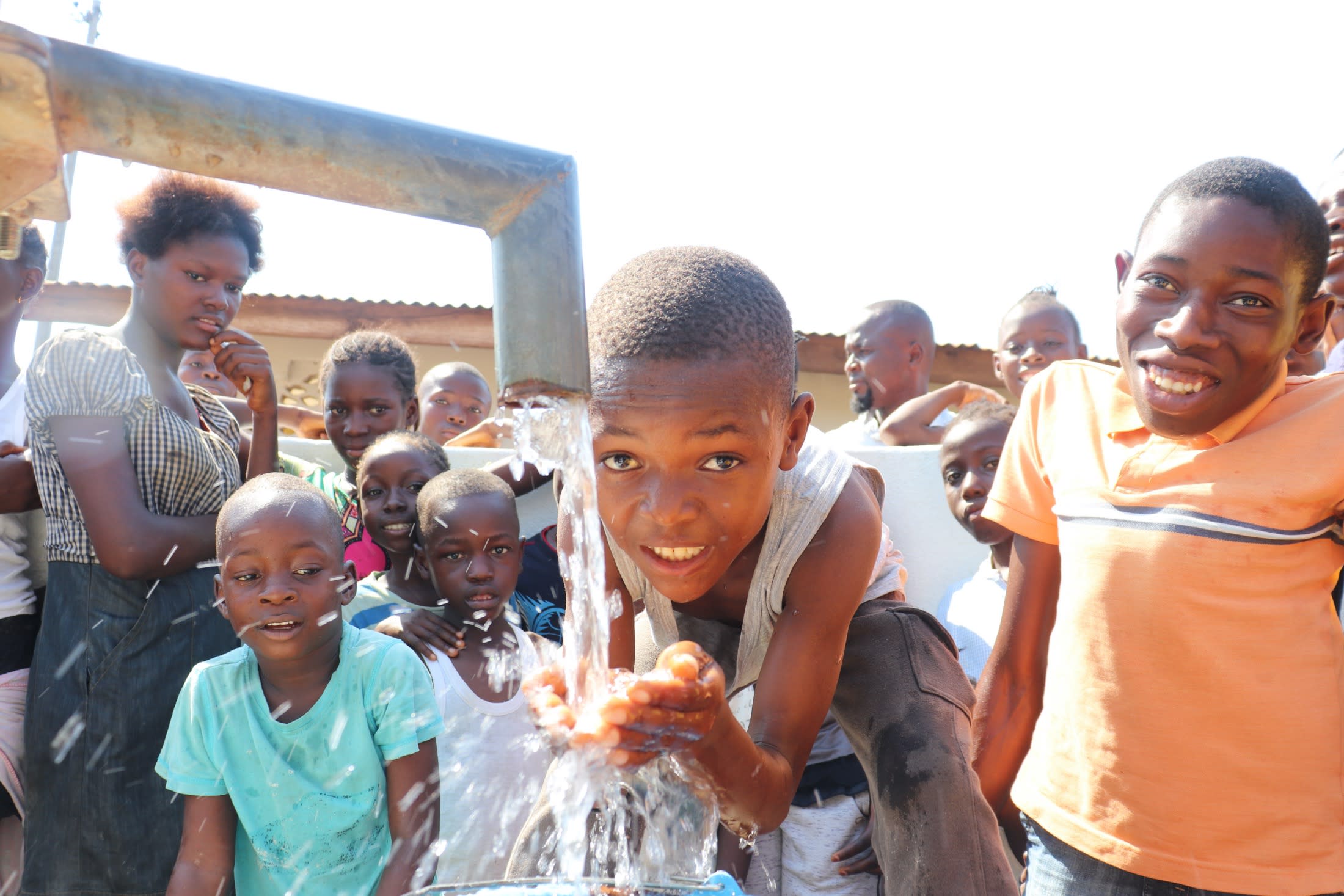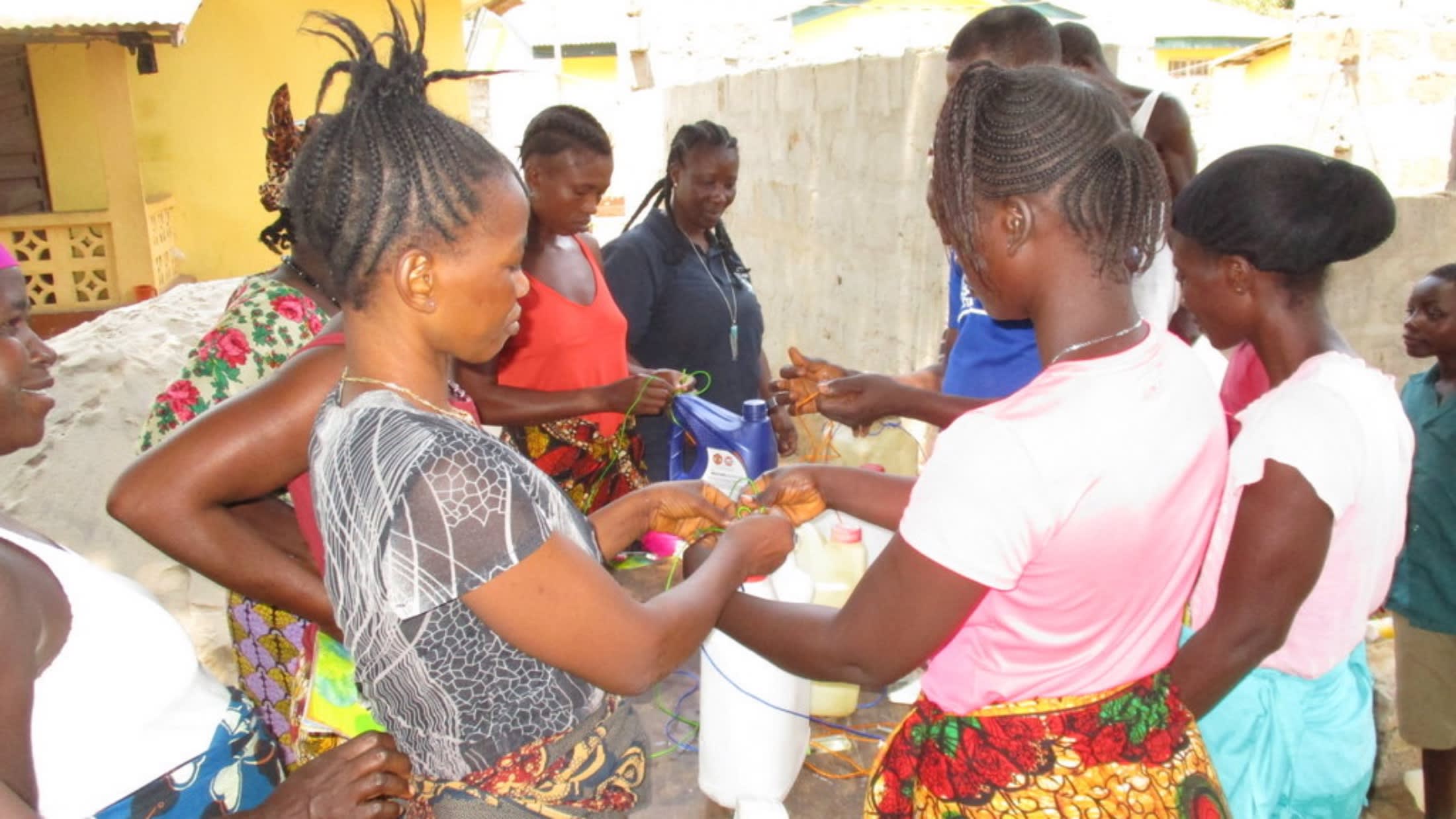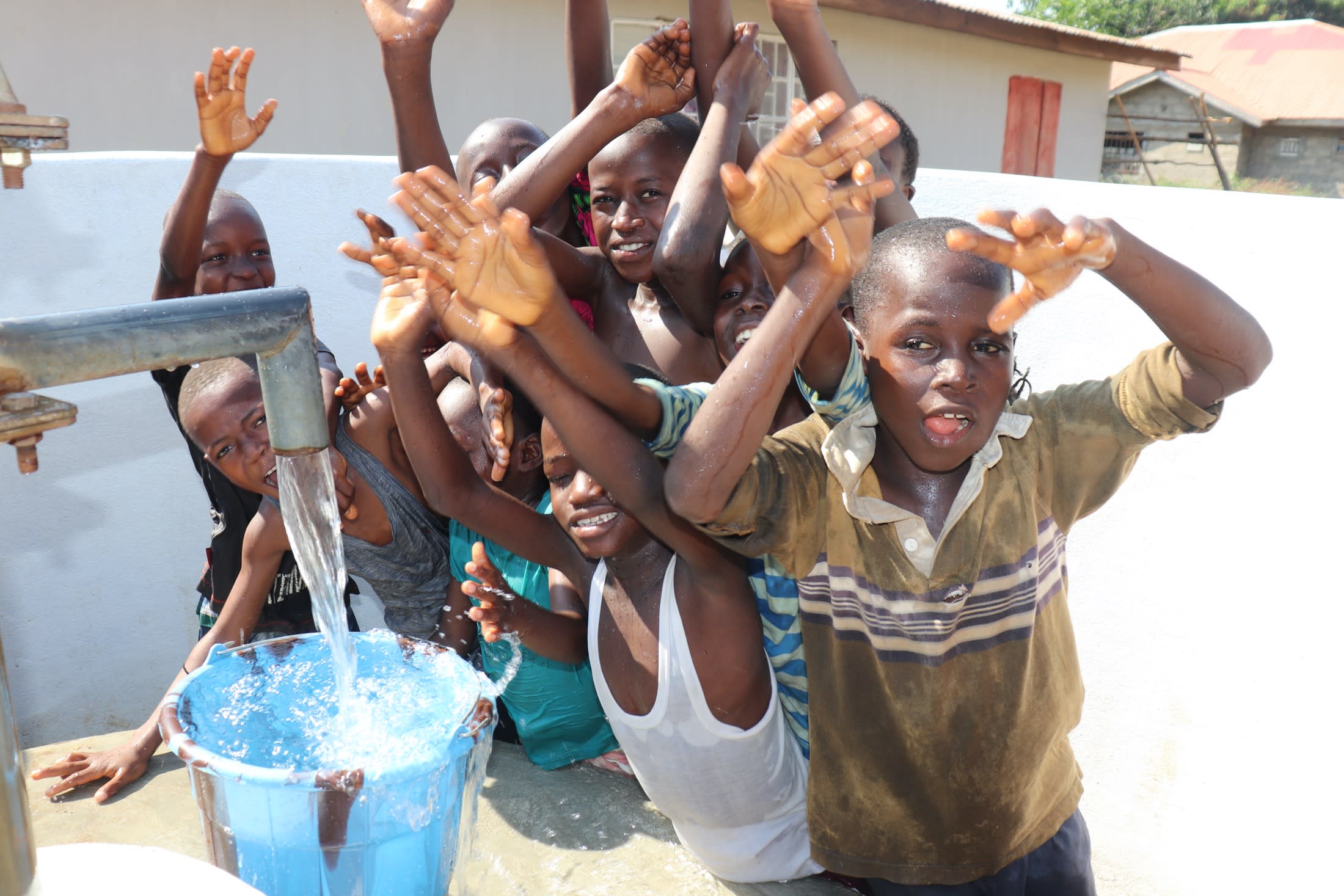Rotifunk is one of the largest communities in this chiefdom and prizes itself as the central business district of this chiefdom. The percentage of concrete block homes is almost equivalent to that of the mud block homes, making this community a fairly urban community.
Aside from the mango trees at the back of a few compounds, there is little vegetation in this community. The community has lost its natural vibe due to urbanization. Vegetation has made way for new modern homes. Property is owned communally here, and plots are cut for any family member who acquires the necessary finances to put up a structure. That means the larger trees in most compounds get cut for such homes to be built.
People here are engaged in very many livelihood-earning activities. Some people work at the nearby airport, others as masons, carpenters, or teachers. Most others will engage in petty trading in order to make a living.
Aside from backyard gardening, commercial gardening is very uncommon here because swamps are in distant locations. However, few respondents revealed that they acquire plots of swamp land in the neighboring community where they plant vegetables for sale in order to be able to feed their family. Usually, owners of swamp lands who cannot cultivate their entire land rent some portion of it to other farmers.
The need for water is the greatest trigger for an early rise in this community. Yes, this community has two wells. However, the population coupled with the exponential water needs of the people requires that they wake up early to avoid long queues. The lines are long due to the fact that one of the wells is not deep enough. As a result, it does not produce much water and even runs dry at times. That means there is less water and it takes longer to fetch it.
"I cannot depend on the purchase of packaged water because I can’t afford it," said Pa Mohamed Turay.
Most others face a similar problem, so they must manage with the little water they can collect each day. Community members are eager to solve the problem. As our teams put it, they await the arrival of the drill team like England awaits the return of the World Cup (the country has not won since 1966).
Here’s what we’re going to do about it:
Well Rehabilitation
The well marked for this overhaul needs major work to supply adequate, clean water to the community year round. The pump will be removed, and a hand auger will be lowered inside and powered by a drill team. This hand auger will allow the team to drill several meters deeper to hit a sufficient water column that will ensure the well supplies water throughout all seasons.
As the team drills, casing will be installed, transforming the bottom of this hand-dug well into a borehole. PVC piping will connect this lower system directly to the pump, a construction that we know will also improve the quality of water.
Once this plan is implemented, everyone within the community will have access to safe drinking water in both quality and quantity, even through the dry months.
Hygiene and Sanitation Training
There will be hygiene and sanitation training sessions offered for three days in a row.
No handwashing stations were observed here. After our visit, the hygiene and sanitation trainer decided it would be best to teach community members how to build a tippy tap (a handwashing station built with a jerrycan, string, and sticks). They will use these tippy taps for handwashing demonstrations, and will also teach about other tools like dish racks and the importance of properly penning in animals.
These trainings will also strengthen the water user committee that manages and maintains this well. They enforce proper behavior and report to us whenever they need our help solving a serious problem, like a pump breakdown.

 Borehole Well and Hand Pump
Borehole Well and Hand Pump






























